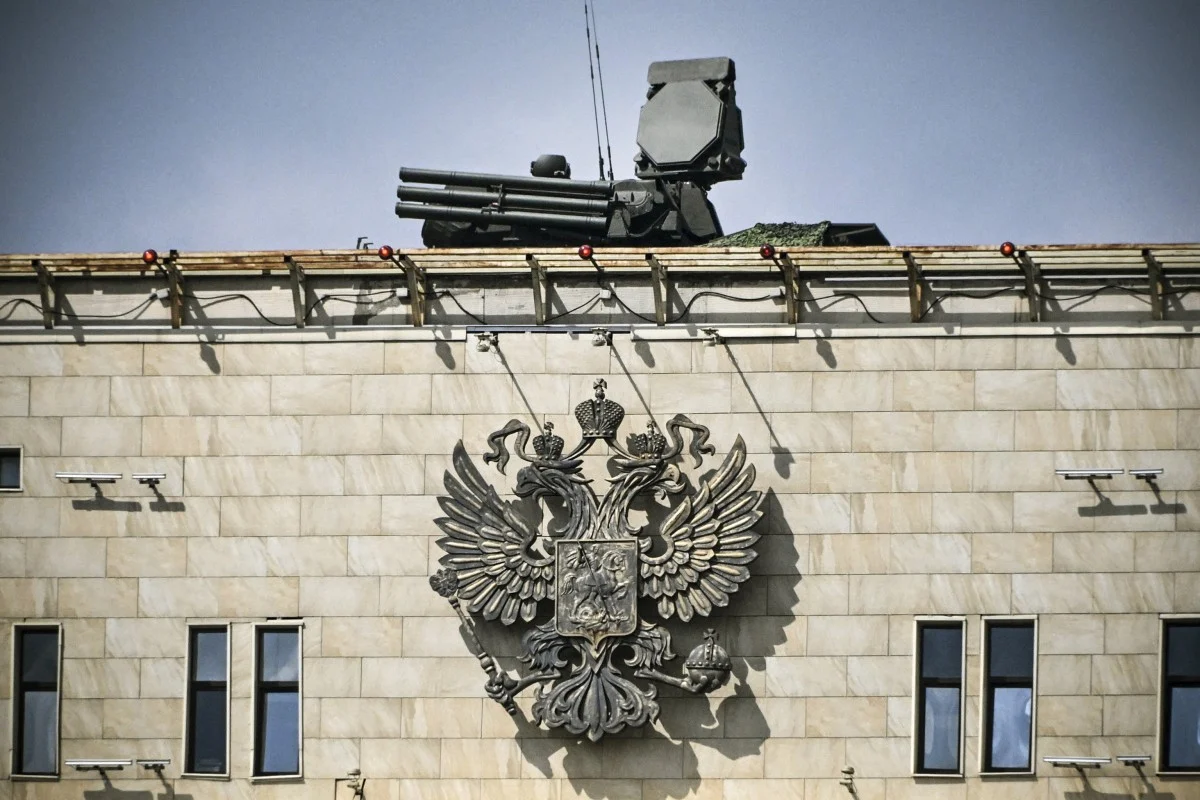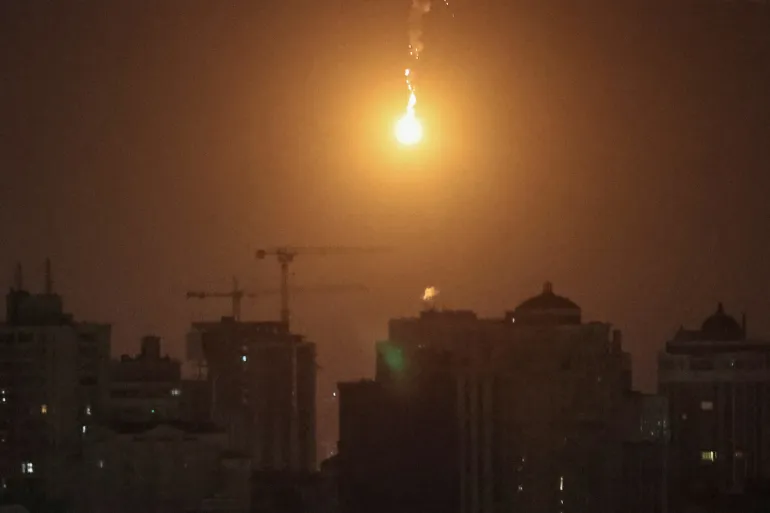Russia Downs Drones In Ukrainian Retaliatory Strike Over Moscow
Russia downs drones in Ukrainian Retaliatory Strike over Moscow. Russian air defenses intercepted and shot down 24 drones overnight, marking the most significant drone attack on Russia in months. The attack spanned multiple regions, including Moscow.
Author:Dexter CookeReviewer:Hajra ShannonNov 26, 2023565 Shares282.4K Views

Russia downs drones in Ukrainian Retaliatory Strike over Moscow. Russian air defenses intercepted and shot down 24 drones overnight, marking the most significant drone attack on Russia in months. The attack spanned multiple regions, including Moscow.
“„Air defence destroyed four Ukrainian drones over the territory of the Bryansk, Smolensk and Tula regions.- Russia’s Ministry of Defence
This comes a day after Russia unleashed its heaviest barrage of loitering munitions on Ukraine in the 22-month-long conflict.
Drones Shot Down Over Russia
Ukraine responded to Moscow's drone onslaught with a planned counteroffensive, launching a total of 35 drones.
Ukrainian air defenses successfully downed eight out of nine drones over their territory. The strike targeted Russian regions, including Moscow, as well as the annexed Crimean Peninsula.
Moscow Mayor Sergei Sobyanin described the drone attack on the capital as "massive." Several drones were aimed at Moscow, prompting flight restrictions at three airports, later lifted.
The strikes caused some damage, with a residential building hit in the Tula region, resulting in one person sustaining mild injuries.

Intensity And Consequences
The drone attacks occurred on the 90th anniversary of Holodomor, a Soviet-engineered starvation tragedy that claimed millions of Ukrainian lives during the Stalin era.
Ukrainian President Volodymyr Zelenskyy condemned the attack as an act of "willful terror," accusing Russia of taking pride in causing harm.
The intensity of the drone attacks against Russia receded on Sunday, with nine additional drones reported by Ukraine's Air Force.
The attacks signify an escalation in the conflict, with both sides employing advanced technologies, including drones, in their strategic maneuvers. The consequences of these actions on the ongoing conflict remain uncertain.
Counteroffensive Strategy
A source within Ukraine's military intelligence revealed that the drone counteroffensive aimed to send a message to Russia about considering the consequences of its actions.
The attack was a calculated response to Moscow's previous drone barrage on Kyiv, emphasizing Ukraine's resolve in the face of Russian aggression.
The drone attack on Moscow represents a significant shift in the dynamics of the conflict.
It is the first time Moscow has been targeted since the summer, underlining the evolving strategies employed by both sides. The attacks also serve as a reminder of the fluid and unpredictable nature of the conflict.
Missile Drills And Sea Of Azov Incident
Amidst the drone attacks, Russia conducted missile drills to test its ability to deliver a "massive" retaliatory nuclear strike.
Additionally, two Ukrainian S-200 surface-to-air missiles, converted for ground strikes, were intercepted over the Sea of Azov, highlighting the multifaceted nature of the conflict.
As both Russia and Ukraine navigate the complexities of the ongoing war, which is characterized by technological advancements and tactical moves, the situation is still fluid.
The international community closely watches the developments, wary of potential repercussions in the broader geopolitical landscape.
Final Thoughts
The recent drone attacks on Russia, the largest it has faced in months, and Moscow's retaliation mark a significant escalation in the ongoing conflict with Ukraine.
The coordinated use of advanced technologies, including drones, underscores the evolving dynamics of the war. The drone attacks on Moscow, coinciding with the anniversary of Holodomor, add a layer of historical and symbolic significance to the events.
As both sides engage in strategic maneuvers, the fluid nature of the conflict and its potential implications for the broader geopolitical landscape demand continued international attention and scrutiny.

Dexter Cooke
Author
Dexter Cooke is an economist, marketing strategist, and orthopedic surgeon with over 20 years of experience crafting compelling narratives that resonate worldwide.
He holds a Journalism degree from Columbia University, an Economics background from Yale University, and a medical degree with a postdoctoral fellowship in orthopedic medicine from the Medical University of South Carolina.
Dexter’s insights into media, economics, and marketing shine through his prolific contributions to respected publications and advisory roles for influential organizations.
As an orthopedic surgeon specializing in minimally invasive knee replacement surgery and laparoscopic procedures, Dexter prioritizes patient care above all.
Outside his professional pursuits, Dexter enjoys collecting vintage watches, studying ancient civilizations, learning about astronomy, and participating in charity runs.

Hajra Shannon
Reviewer
Hajra Shannona is a highly experienced journalist with over 9 years of expertise in news writing, investigative reporting, and political analysis.
She holds a Bachelor's degree in Journalism from Columbia University and has contributed to reputable publications focusing on global affairs, human rights, and environmental sustainability.
Hajra's authoritative voice and trustworthy reporting reflect her commitment to delivering insightful news content.
Beyond journalism, she enjoys exploring new cultures through travel and pursuing outdoor photography
Latest Articles
Popular Articles